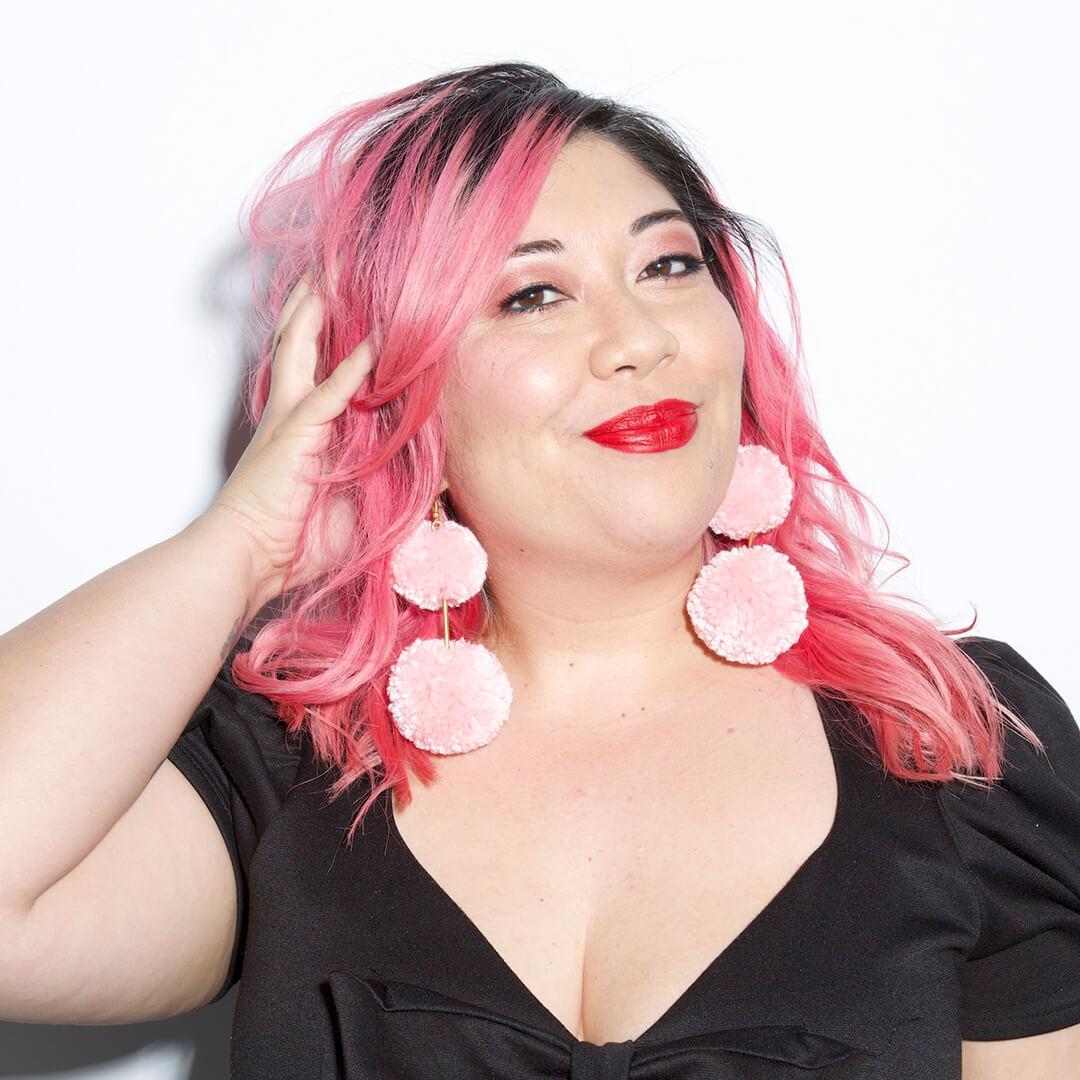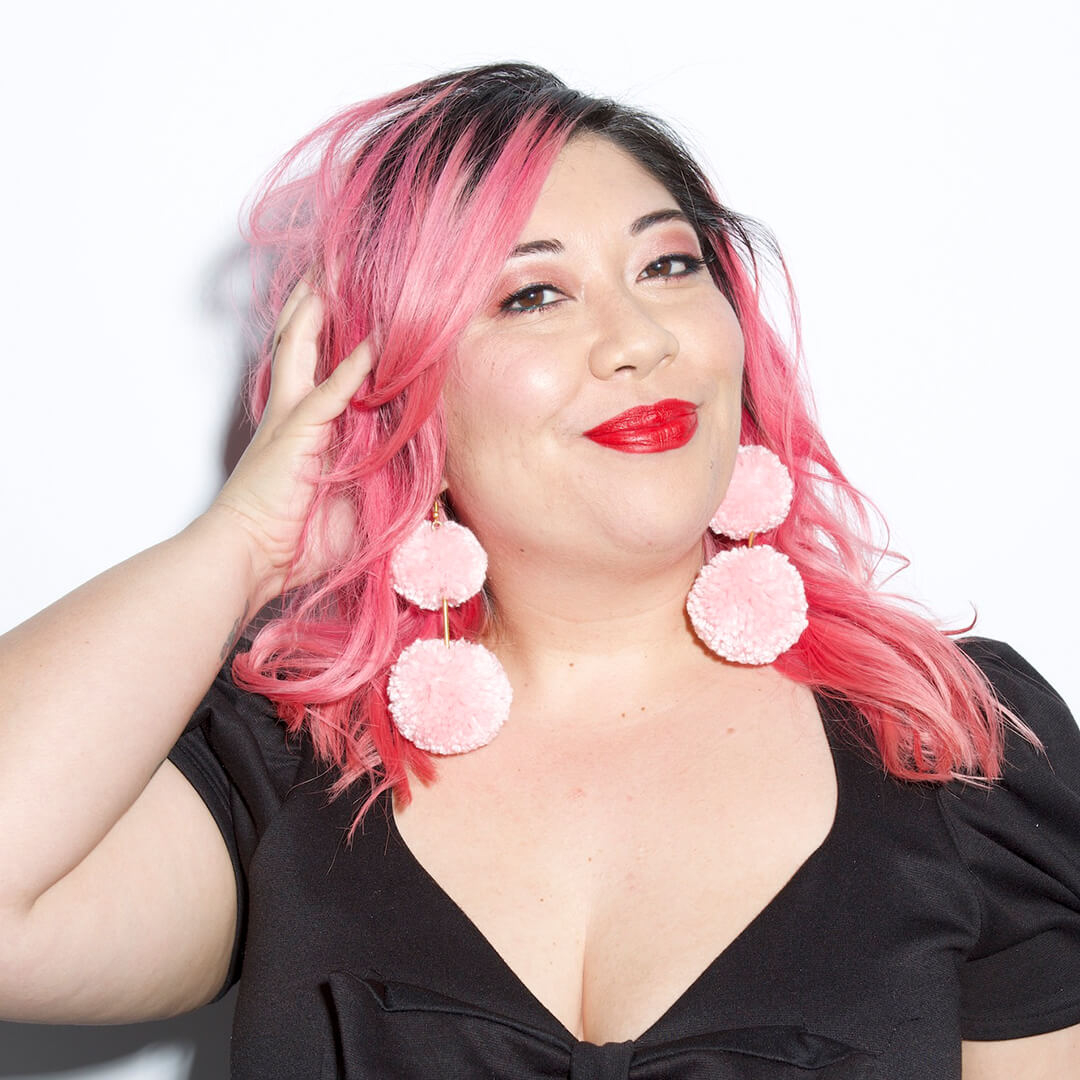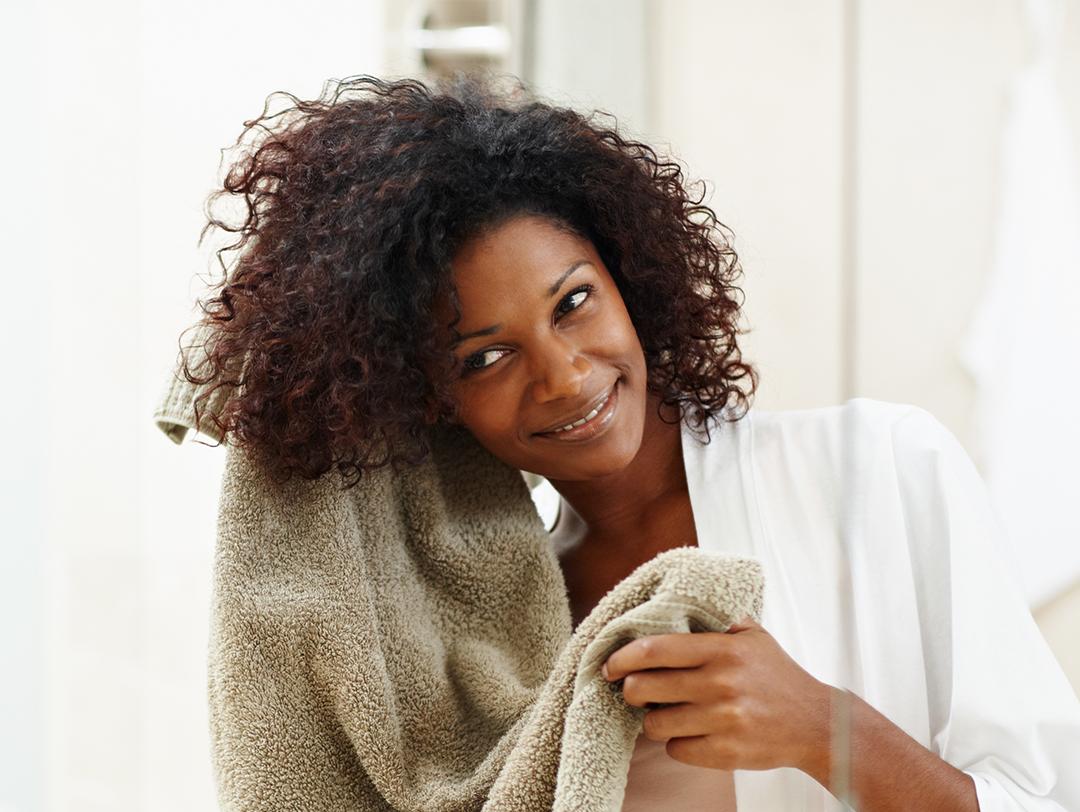Why Hyaluronic Acid Could Be Your Hair’s New BFF



Marie Lodi


If you’re a skincare lover, chances are you likely own some sort of product that boasts hyaluronic acid on its ingredient list. It’s undoubtedly become one of the buzziest skincare ingredients in recent years—so much so that the term hyaluronic has become synonymous with hydration. If you see it mentioned in an ingredient list, you know to expect your skin to feel plump and pampered.
We chatted with dermatologists Dendy Engelman, MD, and Sheilagh Maguiness, MD, all about this star ingredient. “Hyaluronic acid is one of skincare’s most beloved ingredients because of its ability to hold around 1,000 times its weight in water,” says Dr. Engelman. But we couldn’t help but wonder: If it’s typically tied to skincare, does that moisture-boosting magic apply to hair care as well? Read on to learn what the experts say about hyaluronic acid for hair, and whether it’s worth adding to your hair care routine.


It's about glam time you treated yourself.
MEET THE EXPERT
Dendy Engelman, MD, is a board-certified dermatologist and Mohs surgeon at Shafer Clinic in New York City.
Sheilagh Maguiness, MD, is a pediatric dermatologist and co-founder of Stryke Club.
The 411 On Hyaluronic Acid
According to Dr. Engelman, hyaluronic acid “is a naturally occurring polymeric sugar in the body and acts as a cushioning and lubrication agent for our joints, nerves, hair, skin, and eyes.” Sounds pretty good, right? Dr. Sheilagh Maguiness adds that hyaluronic acid, HA for short, is a hygroscopic molecule, meaning it attracts and draws water to itself. “It is abundant in the extracellular matrix of our skin,” she explains. “In skin care, it works as a humectant, drawing water and adding moisture to the skin.” However, Dr. Maguiness points out that while HA is known to be a super strong humectant (referencing back to the 1000 times water weight fact), the ingredient itself is not a true moisturizer. Because it’s a humectant, you’ll need to seal it in with something that contains emollients or ceramides. The ingredients will work in concert with one another to keep moisture locked and loaded—so keep that in mind when choosing a product.
What Hyaluronic Acid Can Do For Your Hair Care Routine
1. Combat Dryness and Frizz
“Like the rest of our skin, the scalp is composed of connective tissue that has a gel-like fluid that nourishes and hydrates the deep layers of the scalp, and that gel is partially comprised of hyaluronic acid,” explains Dr. Dengelman, adding that over time, we lose the natural hyaluronic acid in our skin, which can result in dryness. Boo! “When that happens in the scalp, it can also affect the hair follicles that grow out of it, making them brittle, dry and dull. Applying hyaluronic acid onto the scalp and hair helps infuse that moisture back where it needs to be.”
2. Rejuvenate Aging Hair
Dr. Maguiness is quick to point out there still needs to be a lot more research surrounding HA and its potential benefits, as it’s not currently well studied; however, she does point to one recent scientific study that examines the scalp of an aging female. “It turns out that the skin of the scalp in ageing women becomes thinner and hair follicles start to get smaller over time,” she says. “In addition, the extracellular matrix (which is rich in HA) also thins.” She goes on to explain that the study observed an upregulation of enzymes within hair sheath cells that make hyaluronic acid in the ageing scalp, which could mean that the hair follicle needs more HA as we get older. “So, one could make an argument that HA applied to the scalp could be helpful, in particular as we age,” she says.
3. Treat an Irritated Scalp
According to Dr. Maguiness, hylaronic acid seems to help with symptoms of redness and/or dryness when applied to the skin, which naturally means it might be able to help with scalp issues such as flakiness and irritation. She references a recent Canadian study (FYI, it was funded by Vichy Laboratories) that shows hyaluronic acid 0.4% in Vichy 89 mineral water to be “associated with statistically significant improvement in erythema, irritation, desquamation, and in particular, skin dehydration.” The individuals experienced a 36% improvement in skin dehydration, and the HA was well tolerated even on sensitive skin prone to rosacea.
What Hair Types Is it Best For?
The good thing about hyaluronic acid is that it can benefit anyone, no matter their hair type, which gives us endless possibilities in terms of finding a product that works. However, it can be especially beneficial for those with dry, brittle, and damaged hair, according to Dr. Engelman. And in Dr. Maguiness’s opinion, it’s great for anyone as they get older, as HA is “potentially an even more important ingredient as we age.”
How to Add Hyaluronic Acid To Your Hair Care Routine
Use It In a Leave-In Conditioner
While there are options for hyaluronic acid-infused shampoos, a leave-in conditioner, like IGK Thirsty Girl Coconut Milk Leave In Conditioner, might be the best choice, according to Dr. Maguiness. “HA as an ingredient in an oil or serum for scalp and hair, that is left on the skin rather than being rinsed off (i.e., in a shampoo) may be the best way to get the most benefit from this humectant ingredient,” she says. “I could also see potential benefit by incorporating HA into a leave-in conditioner containing other ingredients to moisturize the hair.”
Use It in a Curl Cream
Dr. Engelman recommends adding hyaluronic acid to any of Prose’s bespoke hair treatments, as it’s available in its shampoos, conditioners, masks, and more. However, if you have curly hair, incorporating HA into Prose Custom Curl Cream is especially beneficial as it can help prevent your curls from drying out.
Use It in a Scalp Mask
Show some love to an itchy and irritated scalp with its very own mask treatment, such as Ouidad Heavy Lifting Bubbling Scalp Mask. The presence of hyaluronic acid adds nourishment (in conjunction with emollients like vitamin E) while other ingredients like white charcoal remove dirt and pineapple juice extract make it silky and smooth.
Level up your hair game by nabbing your own IPSY Glam Bag. Take our Beauty Quiz now to get started. If you’re already in on the fun, refer your beauty-loving friends to earn points. Don’t forget to follow us on Instagram and Twitter @IPSY to keep updated on more hair care stories and must-have products!
Like this article? Share it with your friends by clicking the icons below!
Liked this post? Share!
Related Stories


Ingredient Index
Why Argan Oil Is the Versatile Ingredient Everyone Needs in Their Beauty Routine
Published on Oct 15, 2025 • 8 min read


Ingredient Index
Every Skincare Ingredient You Should (and Shouldn’t!) Use With Vitamin C
Published on Oct 2, 2025 • 9 min read


Ingredient Index
No, Not All Peptides Are the Same, But All Are Beneficial
Published on Aug 12, 2025 • 4 min read


Ingredient Index
Top Anti-Inflammatory Ingredients to Soothe Irritated Skin
Published on Aug 5, 2025 • 6 min read


Ingredient Index
Iron Oxides Are the Skin-Protecting Ingredients Your Routine Has Been Waiting For
Published on Mar 14, 2022 • 3 min read


Ingredient Index
Galactomyces Is the Latest Skincare Ingredient You’re About to See Everywhere
Published on Jul 10, 2025 • 3 min read


Ingredient Index
Everything to Know About the Gentle Healing Ingredient Bisabolol
Published on Jul 10, 2025 • 6 min read


Ingredient Index
Yes, You Should Be Using Adapalene If You Have Acne
Published on Jul 10, 2025 • 4 min read


Beauty Picked Just for You
Get 5 products worth up to $70
Plus exclusive access to epic deals up to 80% off
Starting at just $14/month. Cancel anytime.